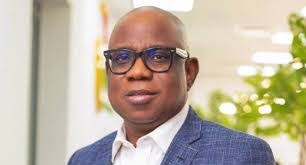The Group Chief Executive Officer of Nigerian National Petroleum Company Limited (NNPC), Mr. Bayo Ojulari, has dismissed recent rumours about his resignation, saying he remains focused on attracting more investment into Nigeria’s energy sector.
Ojulari made this clear on Monday while addressing participants at the 2025 Nigeria Annual International Conference and Exhibition organised by the Society of Petroleum Engineers (SPE). He joined the event virtually and used the platform to outline his vision for a stronger, more globally competitive energy sector in Nigeria.
His appearance comes amid widespread speculation online that he had been forced to resign by unnamed government agencies. However, Ojulari did not address the rumours directly but instead focused on major industry concerns and how Nigeria can position itself better for global energy investment.
He said Nigeria must make its energy sector attractive by building a solid and “bankable” investment case that will compete with other countries, especially as global investment decisions are now being influenced by sustainability and Environmental, Social, and Governance (ESG) standards.
“In a world where global capital pools are vast, the competition for them is fierce. Africa must not just participate; it must compete. Nigeria must make its energy story bankable, sustainable, and globally relevant,” Ojulari said.
Ojulari also rejected the growing opinion that oil and gas are no longer useful, insisting that fossil fuels will still play a key role in the world’s energy future. He said rather than abandoning oil and gas, Nigeria must find ways to use them alongside new technologies like hydrogen, artificial intelligence, and carbon capture systems.
“The future of energy is not linear. It is shaped by the decisions we make today, how we invest, how we innovate, and how we collaborate,” he stated.
He added that compressed natural gas (CNG) is already making an impact in Africa and should be supported more, especially as the continent looks for cleaner alternatives to firewood and other traditional fuels. He said natural gas should be accepted as a transition fuel that can help Nigeria and other African countries meet their climate targets without stopping development.
Ojulari explained that Nigeria must de-risk its energy environment by improving contract agreements, regulatory systems, and dispute resolution processes. According to him, investors are looking for stability, clear rules, and reliable partnerships.
“Our transition must be just. It must reflect the reality that in many parts of Africa, energy poverty is still the dominant challenge,” he added.
He said Africa’s energy plans must not be imposed by others but should be based on what works for the continent. With many Nigerians and other Africans still without stable electricity, the priority, he said, should be energy justice, which means giving everyone access to reliable, affordable power.
Ojulari also called for stronger collaboration between public and private players in the energy space. He said strategic partnerships and innovative funding models will be key to unlocking new opportunities, especially as the world moves towards cleaner energy sources.
The NNPC GCEO’s remarks set the tone for the conference, which brings together industry players, engineers, policymakers, and investors to discuss the future of oil and gas in Nigeria.
The conference is happening at a time when the sector is facing challenges from global energy shifts, low foreign investment, and increased pressure to cut carbon emissions. Despite these hurdles, Ojulari’s message was clear — Nigeria must find its own path and make itself competitive on the global stage.
